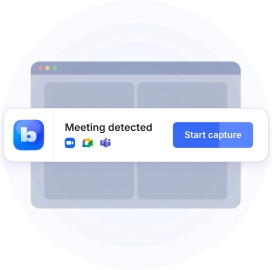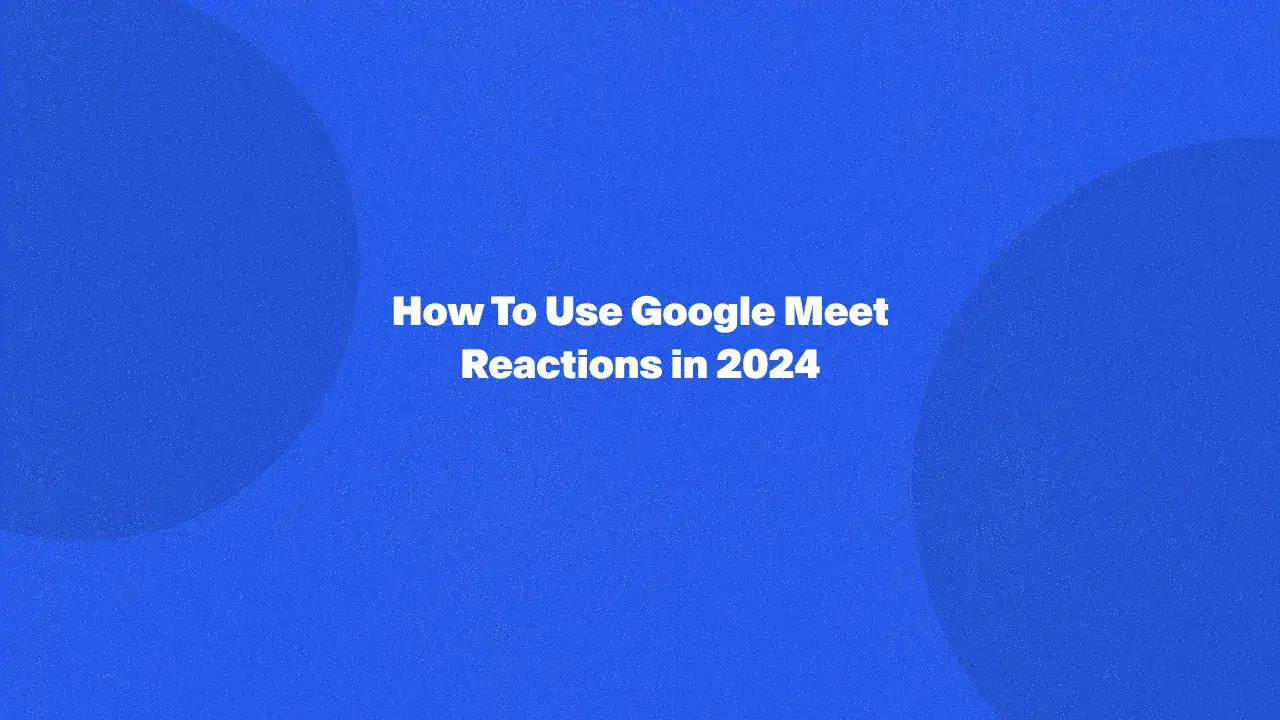
Want to add a touch of fun and interaction to your Google Meet calls? Look no further than Google Meet emoji reactions. These emojis allow participants to share quick, non-verbal cues like agreement, confusion, or laughter. This can provide valuable insights into audience sentiment and keep everyone engaged. But there's more to reactions than meets the eye.
Keep reading to unlock the hidden potential of Google Meet reactions and transform your video conferences.
Use Reactions In Personal Google Accounts
Just like Google Meets virtual backgrounds, Google Meet emoji reactions allow you to share quick non-verbal cues during a meeting using emojis. This can be a great way to provide feedback, show understanding, or simply add a bit of fun to your interactions.
However, it's important to note that this feature is only available for Google Workspace or Enterprise accounts. Additionally, the meeting host might have disabled reactions for that specific call.
Send Reactions During A Meeting
Here's how to send reactions during a Google Meet meeting:
- Join a Google Meet video meeting.
- Locate the reaction button. On a computer, it's the smiley faces icon at the bottom of the meeting window. On Android devices, you'll find it under the "More controls" menu (three dots).
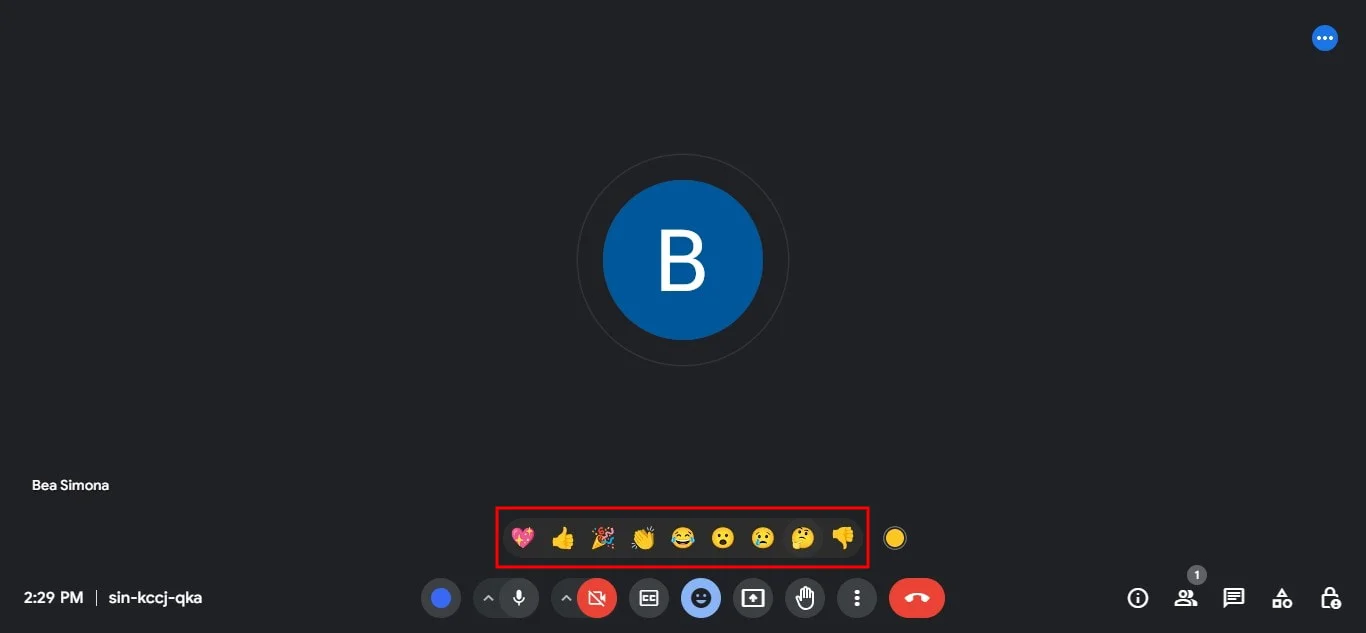
3. Click or tap the reaction button. This opens the reaction panel with various emojis.
4. Your chosen emoji will appear as a small badge on your video tile and animate on the left side of the screen.
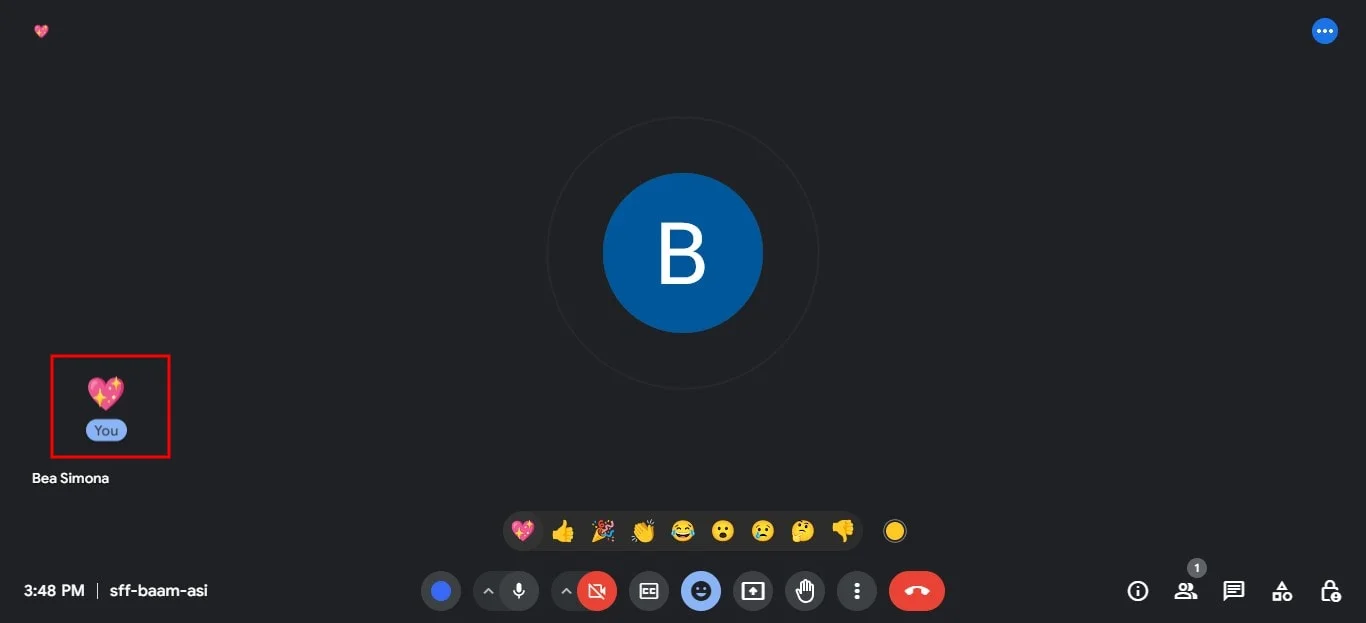
Group similar reactions by multiple participants with emoji balloons
When multiple user engagements end up using the same reaction, it appears as a group of emoji balloons floating up on the side of the screen to the upper left corner. In meeting reactions provide a visual representation of the overall sentiment in the meeting and can be a fun way to see everyone's thoughts.
Choose a skin tone for your Reactions in Meet
(For computer users only)
Google Meet allows you to personalize your reactions by choosing a few skin tones for each emoji. Here's how:
- Hover over the reaction you want to send in the reaction panel.
- A small yellow dot will appear next to the emoji control bar.

3. Select skin tones from the options.
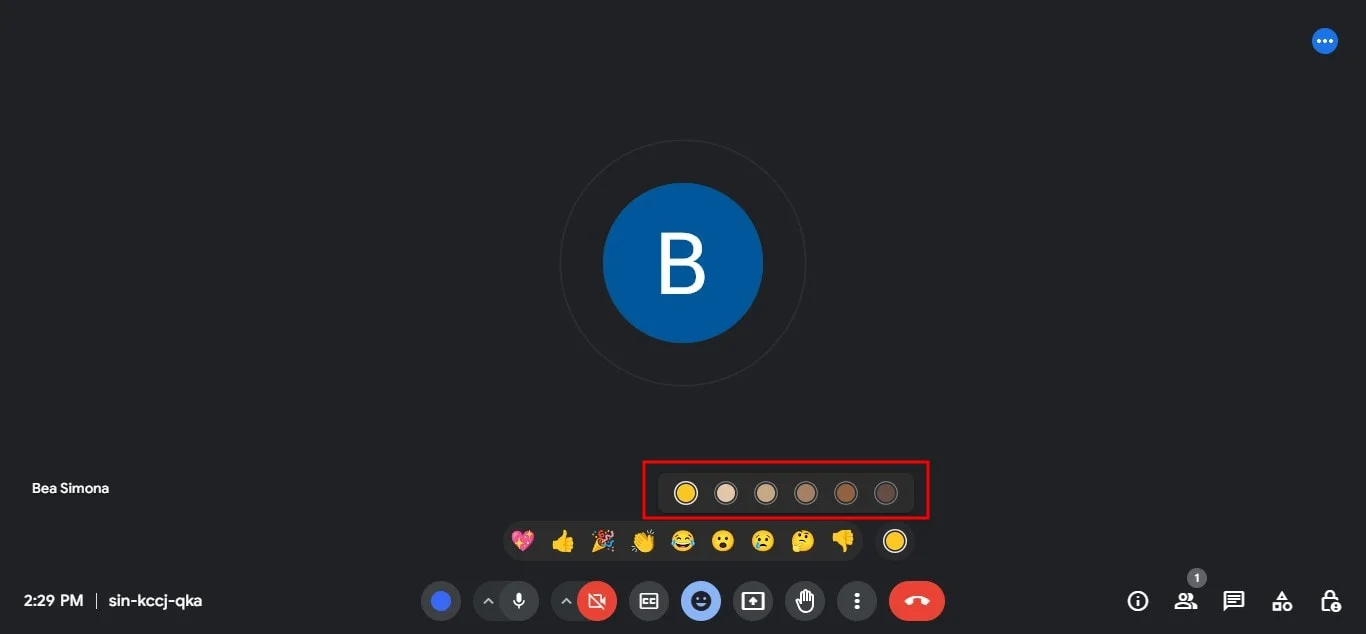
4. Now, when you send that reaction, it will appear with your chosen skin tone on the sender's video tile.
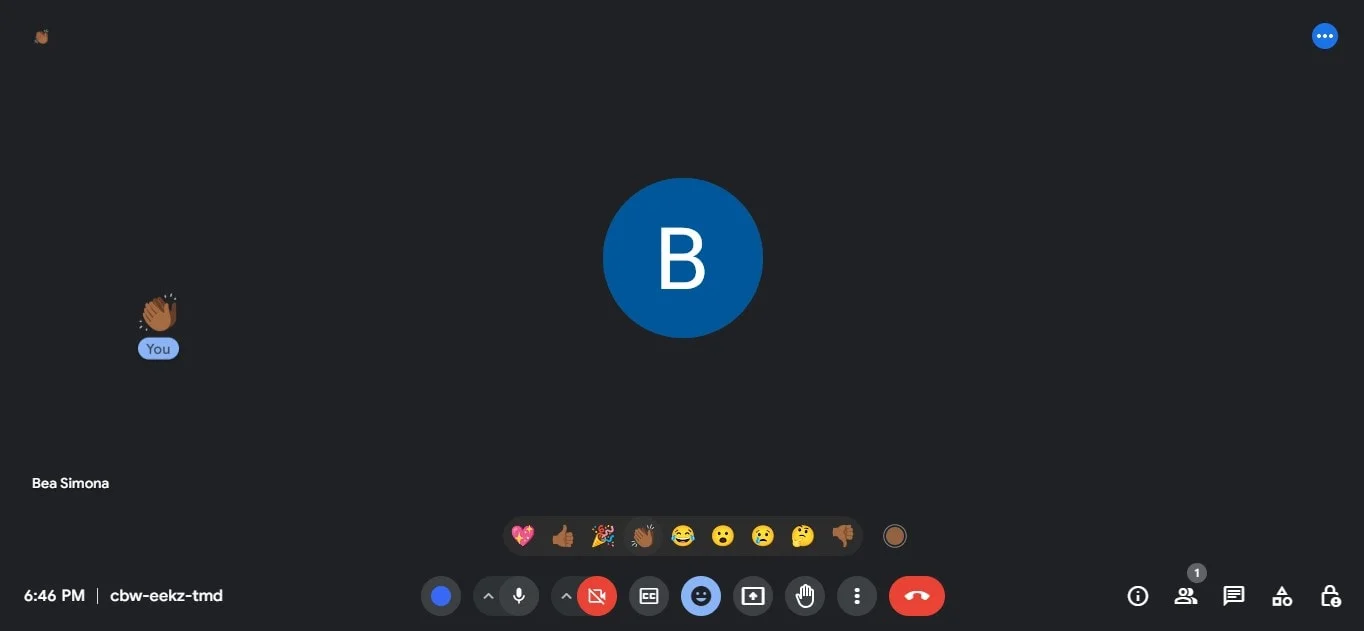
Turn Off Reactions For All Participants In The Call
Yes, you can turn off reactions for all other participants in a Google Meet call, but only if you're the meeting host. Here's how to do it:
- Click on the "Host controls" button in the bottom right corner of the meeting window.
- Under "Meeting moderation," toggle on "Host management".
- Now, you'll see an option for "Send reactions". Turn that toggle off.
This will disable the reaction button for all participants, including yourself. They won't be able to see your reaction bar on the emoji panel or use reactions during the call. This is a similar feature to the host being able to mute all participants and eliminates background noise.
Why Am I Seeing Reactions When I Didn't Click Anything?
There are two possible reasons you might be seeing reactions in a Google Meet call even if you didn't click anything:
Apple device reactions (iOS 17 and macOS Sonoma):
- If you're using a recent iPhone, iPad, or Mac, you might be experiencing a feature called Apple Reactions. This feature, introduced in iOS 17 and macOS Sonoma, allows emojis to appear on video calls when you use specific hand gestures in front of your camera on your personal Google accounts.
Technical issue:
- If you're seeing a flurry of random emojis or ones that don't seem to correspond to the meeting's flow, it could be a sign of an underlying technical issue.
Change Reactions in Meet settings
Unfortunately, there are no settings within Google Meet itself that allow you to directly change the available reactions or their default functionality. Luckily these meetings do not require Google Meet hardware devices in order for reactions to work.
Conclusion
Incorporating reactions into your Google Meet calls can be a fun and engaging way to gauge audience sentiment and add a touch of interactivity. By understanding how to use reactions to encourage participants and their potential quirks, you can enhance your video conferencing experience.
However, if you need more than just reactions to capture the full context of your meetings, consider using a dedicated recording tool like Bluedot Here's why Bluedot works:
Beyond recording and transcription, Bluedot offers additional features to streamline your workflow:
Whether you're looking to revisit key points, share recordings with colleagues, or create permanent records of meeting participants, Bluedot also offers 17 different languages that your meetings can be transcribed into.





